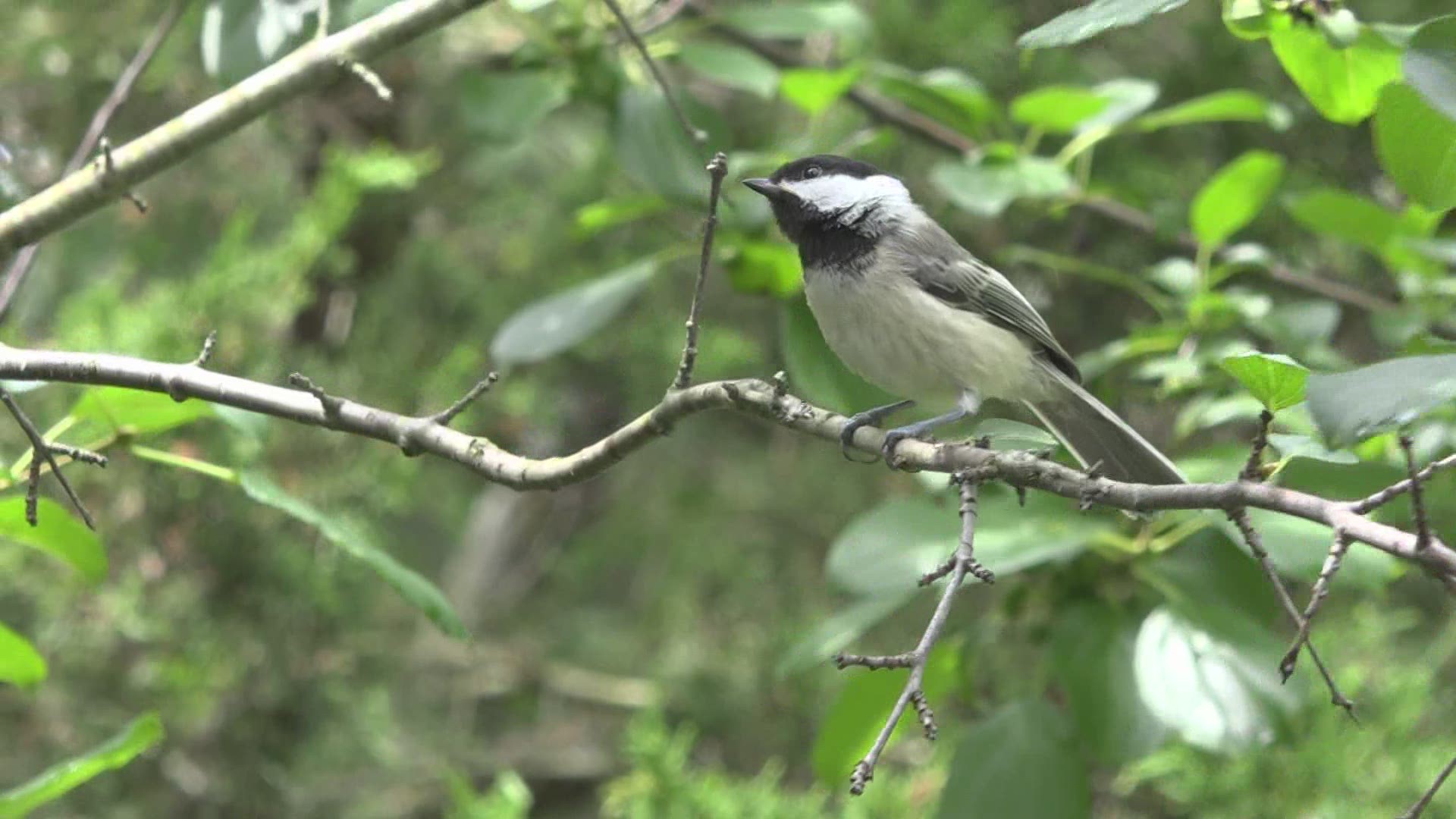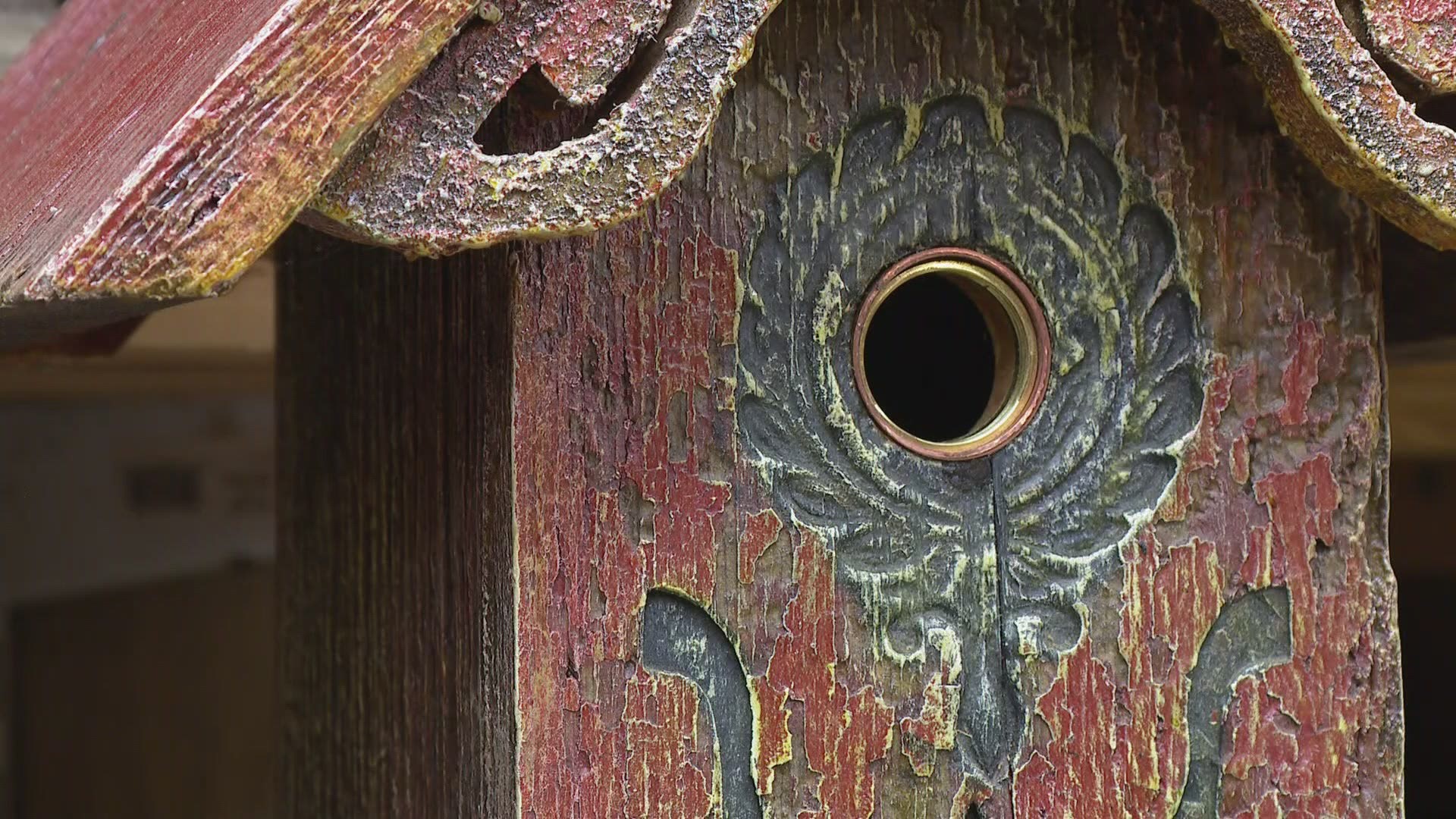GRAND RAPIDS, Mich. — On a peaceful June morning, the loudest sound that can be heard while walking through Huff Park on the northeast side of town is the squawking of dozens of blue jays feeding their young. Michigan's bird lovers are hoping that call, jay jay jay jay, continues as a sign that one of our state's most recognizable backyard birds is alive and well.
But birdwatchers from here to the east coast are worried about a mysterious illness affecting songbirds. It started in late May near Washington D.C. Some birds like blue jays and grackles seemed disoriented and had a tough time flying. Their eyes became swollen and crusty. Hundreds of them have died from the illness.
Since it was first spotted, it has been reported in several states like Maryland, Virginia, West Virginia and Kentucky. It was recently reported in Michigan's neighbors to the south, Ohio and Indiana. Though no cases have been reported thus far in Michigan, they have been reported in Indiana counties that border our state like St. Joseph, Elkhart and LaPorte.
"I got a phone call right away from my counterpart down in Indiana," said Michigan DNR Wildlife Health Section Supervisor Kelly Straka. "The state wildlife health folks in the states in the Midwest communicate very frequently. In fact, we have a phone call lined up later this week on this very topic so that we can all fill each other in."
Straka says right now indications are that this only affects songbirds. She has no reason to believe that people, pets, poultry or livestock would be affected. Wildlife researchers are trying to rule out any other common illnesses that affect songbirds. Straka says swollen, crusty eyes are the biggest indicator that a bird might be infected with this particular illness.
Indiana and other states with reports of sick birds have recommended that people take down their bird feeders because it's a place where songbirds congregate and their interaction could spread the illness, though it's not known for sure yet whether this sickness is caused by an infection. For now, Michigan is not asking people to pull their feeders.
"That may be the recommendation moving forward if we do detect this or if we find out what the cause is," Straka said. "At the very minimum take them down and clean them."
Straka recommends cleaning feeders once per week.
"I personally will rinse in a 10% bleach solution, rinse with water, and then leave them out in the sun to air dry. I think that’s just good, regular hygiene," she said.
"By all means, if people are concerned about this and they choose to voluntarily take down their feeders, I would absolutely support that until we know what we’re dealing with."
If you do find a bird you think is sick or injured, Straka says you can take a picture of it and file a report with the Wildlife Disease Lab. Their number is 517-336-5030. The DNR also has a page on its website called "Eyes in the Field," where people can report sick or injured wildlife.
►Make it easy to keep up to date with more stories like this. Download the 13 ON YOUR SIDE app now.
Have a news tip? Email news@13onyourside.com, visit our Facebook page or Twitter. Subscribe to our YouTube channel.


